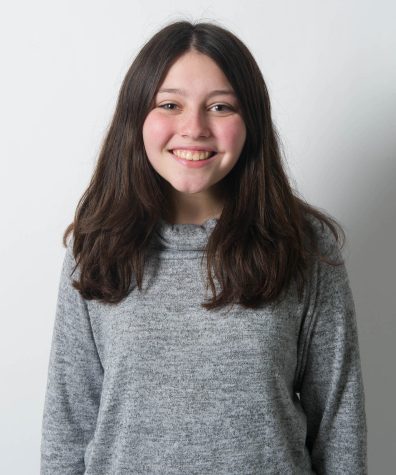Henges and Keller discuss the impact of the 2016 election on their classes
For many high schoolers, the 2016 presidential election is the first election that students have been actively involved in, creating a new environment in history classes that concentrates more heavily on what is happening in the government today and the controversies of the election.
“We got to take our AP Government students through the whole primary process and watched the different candidates. As people dropped out, or as different events happened and different people won it was a great opportunity for me as a government teacher to teach government while watching it happen in real life,” teacher Michael Henges said.
Students are being exposed to the events of political conventions, debates and presidential campaigning, which has been raising many new questions and interest in politics that was not as present in the past.
“Most students were asking me the first day of school what a superdelegate was, so [their interest in politics] makes my job a lot easier and a lot more relevant,” Henges said. “As far as the general election goes, the interest level is way up.”
AP US History teacher Amber Keller agrees that more students are aware of this election than before.
“For my AP classes, people are a lot more aware of this election because it had a lot of craziness going on and a lot of controversial issues were addressed. I think kids were definitely more into this election than any other election I’ve seen,” Keller said.
Henges believes there is a relationship between student interest in politics and the number of AP Government classes. Last year, there were four classes, and this year there are five.
“I think most of them have a higher interest level right now and at this point there’s a little bit of fatigue because it’s all everyone is talking about and that’s all that is in the news but I think that there is definitely, in general, a higher interest and a recognition that this stuff that we’re talking about in class is important,” Henges said.
According to Henges, by teaching in the middle of a presidential election, the teaching strategies and information being given to the students has been impacted in a positive way.
“It adds a flavor to the class that, instead of a powerpoint slide, I might be talking about a news story and still be making the same point,” Henges said. “Also, students bring questions to me instead of me having to try to elicit questions from them.”
Henges claims to have seen a great increase in student interest in politics and government in the classroom environment, and he is using this to his advantage.
“I think that students recognize the importance of getting involved and participation and this election definitely shows them that.” Henges said.
Henges and Keller work hard to incorporate the circumstances of the election into their education and keep their students informed of politics and what is occurring in the world around them.
“One of the things I encourage in my class is for people to discuss and form relationships with people who might not agree with them and just have a conversation with them instead of treating people as ‘the other’ or ‘those people,’” Henges said. “In my classes, we have mock elections and mock congresses, things that make the learning a bit more experiential instead of just taking notes.”
Especially in AP classes, where current events are regularly discussed, the election has come up as a topic in classrooms throughout the school. According to Keller, students have expressed significant fear for the future of them and their friends and peers.
“I always make sure students have a safe place in my classroom to discuss all points of view,” Keller said. “As Americans, we have to make sure to stay vigilant and to watch and to make sure bad things aren’t taking place. Students know that we have teachers, family, and friends always protecting us.”
According to Henges, student involvement in this year’s election has lead to new conversations between classmates and teachers, creating exposure to opinions that many had not interacted with until this election.
“If you get to sit down, converse, and interact with a diverse group of people politically you learn that a lot of people have a lot of different world views but their motivations and reasons for those world views might be more complex than people realize,” Henges said.

If you're in dance guard, you probably know me as "Nad Stodd", but if you aren't, you may know me as that anyway. When I'm not writing, dancing, or throwing flags, I'm in my bedroom thinking about writing...


